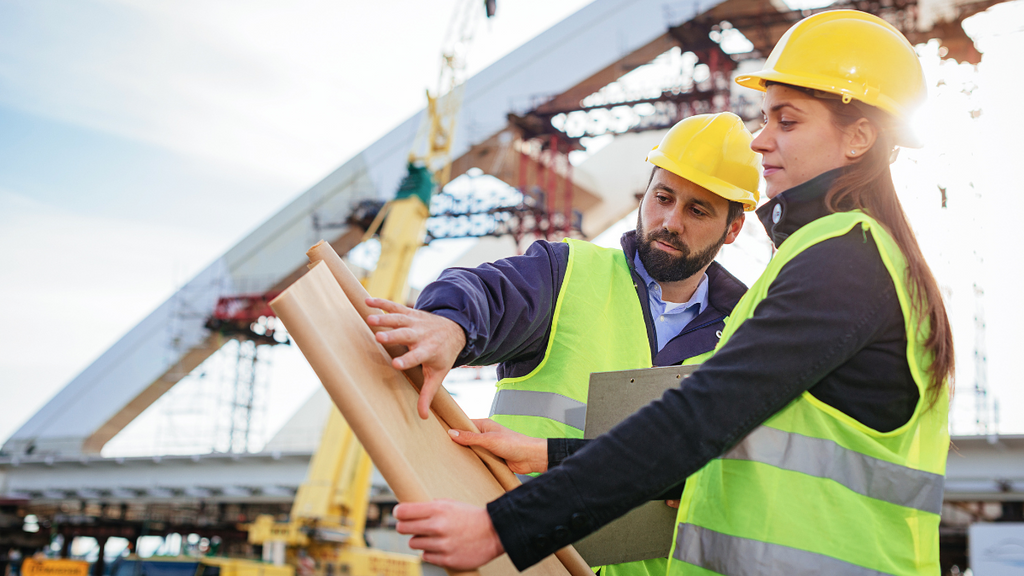What Does Geotheta Mean?
What Does Geotheta Mean?
Blog Article
The Buzz on Geotheta
Table of ContentsMore About GeothetaGeotheta Things To Know Before You Get ThisThings about GeothetaFacts About Geotheta RevealedOur Geotheta Ideas

They conduct site examinations, accumulate samples, perform lab examinations, and examine information to examine the viability of the ground for building and construction projects - Tailings Engineer. Based upon their searchings for, geotechnical designers give referrals for foundation design, slope stability, maintaining frameworks, and reduction of geotechnical threats. They collaborate with various other experts, such as engineers, structural designers, and building and construction groups, to make certain that geotechnical considerations are integrated into the general project design and execution
By examining the habits and residential or commercial properties of soil and rock, they can identify potential geotechnical hazards such as landslides, dirt settlement, or incline instability. Their knowledge helps avoid failures or accidents that can endanger lives and property. Below are some in-depth obligations and responsibilities of a geotechnical engineer: Website Investigation: Geotechnical designers conduct site examinations to collect information on subsurface problems.
They translate the information to recognize the residential or commercial properties and habits of the dirt and rock, including their stamina, leaks in the structure, compaction features, and groundwater problems. Geotechnical Evaluation and Style: Geotechnical designers assess the information accumulated during website examinations to evaluate the stability and suitability of the website for building and construction tasks. They carry out geotechnical calculations and modeling to assess aspects such as bearing capability, negotiation, incline stability, lateral earth pressures, and groundwater circulation.
The Main Principles Of Geotheta
Structure Layout: Geotechnical engineers play a critical function in creating structures that can safely support the intended structure. They evaluate the soil problems and load demands to determine the suitable structure type, such as shallow foundations (e.g., footings), deep foundations (e.g (https://profile.hatena.ne.jp/geotheta/)., piles), or specialized strategies like soil renovation. They think about factors such as negotiation limitations, bearing ability, and soil-structure interaction to develop optimum foundation designs
They examine construction strategies, screen website activities, and perform field inspections to validate that the style recommendations are adhered to. If unexpected geotechnical issues arise, they evaluate the scenario and offer referrals for removal or changes to the layout. Danger Evaluation and Reduction: Geotechnical engineers assess geotechnical threats and threats connected with the task site, such as landslides, liquefaction, or soil erosion.

Cooperation and Communication: Geotechnical designers function closely with other professionals associated with a project, such as engineers, structural engineers, and building and construction teams. Efficient interaction and partnership are important to integrate geotechnical factors to consider into the general project style and building procedure. Geotechnical engineers offer technological expertise, response inquiries, and make certain that geotechnical demands are met.
The 25-Second Trick For Geotheta
Here are some kinds of geotechnical designers: Structure Engineer: Foundation designers specialize in making and examining structures for frameworks. They evaluate the soil problems, tons requirements, and site features to establish the most appropriate structure kind and style, such as superficial foundations, deep structures, or specialized techniques like pile structures.
They review the factors influencing incline security, such as dirt homes, groundwater problems, and incline geometry, and develop techniques to prevent incline failings and alleviate dangers. Quake Designer: Earthquake engineers concentrate on examining and making structures to endure seismic forces. They assess the seismic hazard of a site, assess dirt liquefaction capacity, and develop seismic layout standards to make certain the security and resilience of frameworks during quakes.
They execute field testing, accumulate samples, and assess the accumulated data to characterize the soil residential or commercial properties, geologic developments, and groundwater problems at a site. Geotechnical Instrumentation Engineer: Geotechnical instrumentation designers concentrate on surveillance and determining the behavior of dirt, rock, and structures. They mount and preserve instrumentation systems that keep track of factors such as dirt negotiation, groundwater degrees, incline activities, and structural displacements to assess efficiency and offer very early warnings of potential issues.
The smart Trick of Geotheta That Nobody is Talking About
They conduct tests such as triaxial examinations, debt consolidation tests, direct shear examinations, and permeability tests to collect data for geotechnical evaluation and layout. Geosynthetics Engineer: Geosynthetics engineers specialize in the style and application of geosynthetic products, such as geotextiles, geogrids, and geomembranes. They use these materials to boost soil security, strengthen inclines, give drain click for source remedies, and control disintegration.
They have a tendency to be investigative individuals, which means they're intellectual, introspective, and analytical. They are curious, methodical, logical, logical, and rational. Some of them are likewise social, indicating they're kind, generous, cooperative, patient, caring, useful, empathetic, sensible, and friendly - Geo Tech Engineering.
In the office atmosphere, geotechnical engineers make use of specialized software devices to perform calculations, develop styles, and evaluate data. They prepare records, testimonial job specifications, communicate with customers and employee, and coordinate project tasks. The office setup supplies a conducive environment for research study, analysis, and collaboration with other professionals associated with the project.
5 Easy Facts About Geotheta Explained
They frequently go to project sites to conduct site investigations, assess geotechnical conditions, and gather information for analysis. These gos to involve traveling to various places, sometimes in remote or challenging surfaces. Geotechnical engineers may do soil sampling, conduct tests, and screen building tasks to make sure that the geotechnical aspects of the project are being executed appropriately.
Geotechnical engineers also work in specialized geotechnical research laboratories. In these centers, they conduct experiments, execute tests on soil and rock examples, and analyze the design buildings of the materials. Geotechnical lab designers work thoroughly in these atmospheres, taking care of screening tools, running instruments, and tape-recording data. They collaborate with other research laboratory staff to make certain exact and reliable screening results.
Report this page